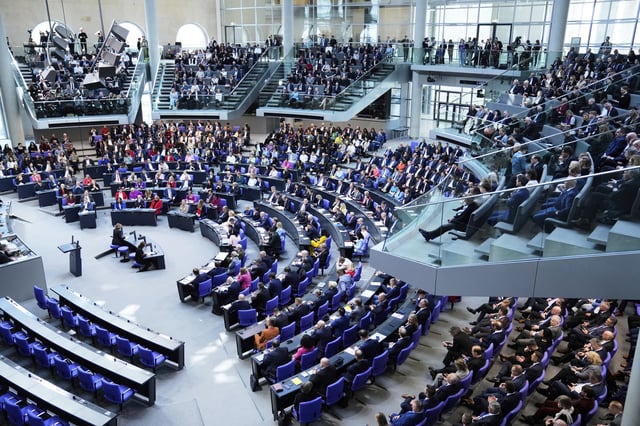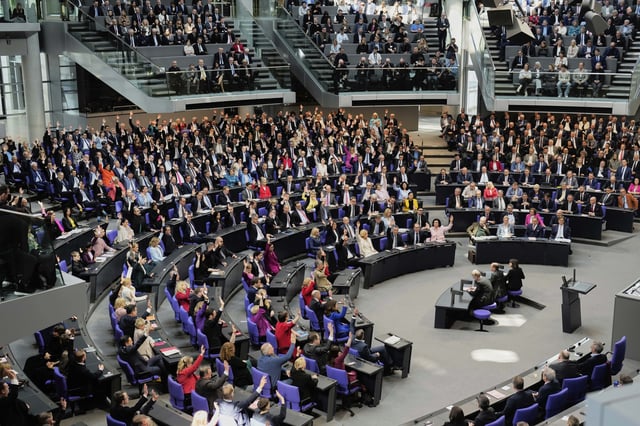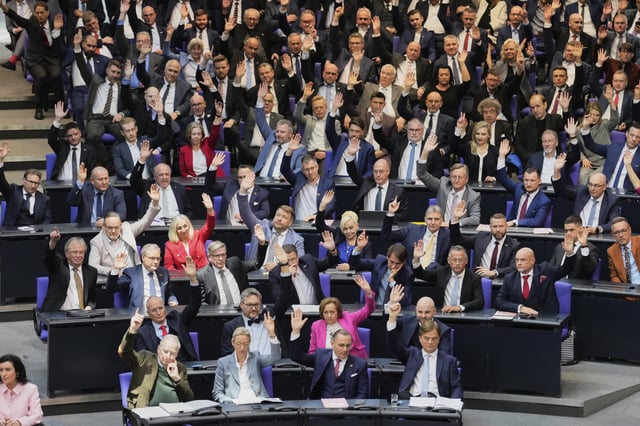Overview
- The new Bundestag convenes with the far-right AfD as the main opposition, holding its largest share of seats since its founding, highlighting Germany's political polarization.
- Coalition negotiations between Friedrich Merz's CDU/CSU and the SPD face significant challenges, particularly over migration policy and welfare reforms.
- Merz's historic shift to debt-financed spending has drawn backlash from conservative voters and CDU/CSU members, weakening his negotiating position.
- The SPD holds a stronger hand in talks, given Merz's limited coalition options and his concessions on fiscal policy, including a massive borrowing plan for defense and infrastructure.
- Despite Merz's goal to finalize the coalition by Easter, unresolved disagreements over migration and welfare reforms threaten to delay the timeline.



